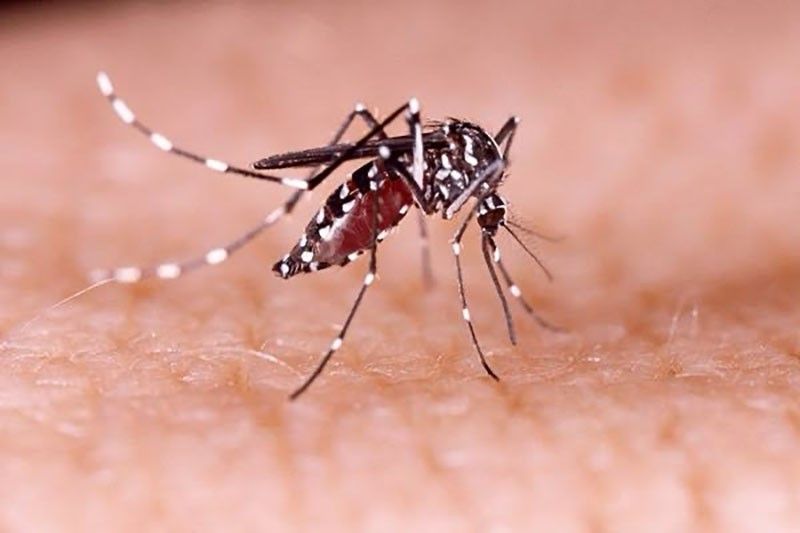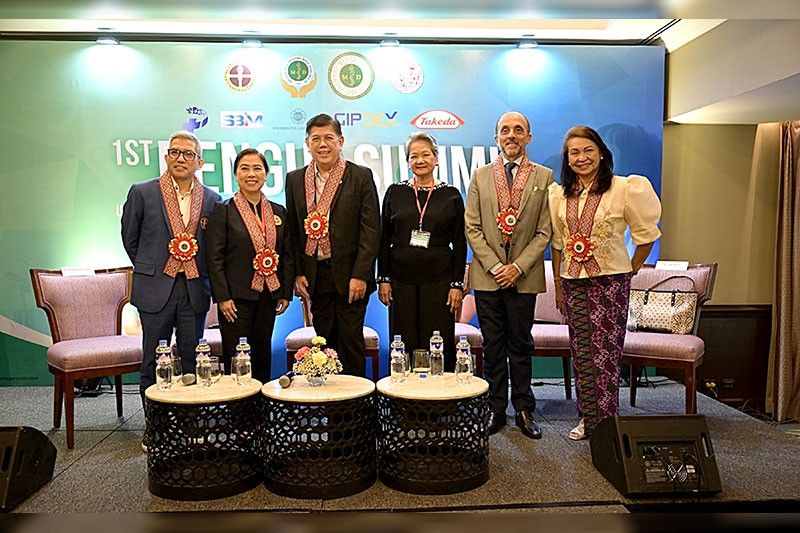Dengue is now a vaccine-preventable disease, but not in the Philippines


Did you know that there’s no specific treatment for dengue? No drugs, no antibiotics. Just fluids.
Make that the right amount of fluid.
“Deaths from dengue are usually caused by too little (dehydration) or too much fluid intake,” explained Dr. Lulu Bravo, executive director of the Philippine Foundation for Vaccination. “That happens when a patient ignores the early symptoms like high fever and goes to the doctor too late.”
According to Dr. Bravo, it was Dr. Florentina Uy-Ty, immediate past president of the Philippine Pediatric Society Inc., who started this appropriate (dengue) management, which the World Health Organization (WHO) is now trying to cascade to all medical societies.
“Sadly,” she added, “there are still doctors who don’t know how to administer fluid therapy to dengue patients.”
Dr. Bravo is one of the keynote speakers at the First Dengue Summit, a collaborative effort led by the Philippine Medical Association (PMA), the Philippine College of Physicians (PCP), and the Philippine Pediatric Society Inc., held recently at the Manila Diamond Hotel, which aims to galvanize a national action against the urgent public health threat posed by dengue fever.
With a resolute commitment to achieving “Zero Dengue Death by 2030” in alignment with the United Nations’ Sustainable Development Goal 3, health leaders, policymakers, researchers, and advocates nationwide convened for the inaugural Dengue Summit.

Prevention is still key
Mere mention of the word dengue is enough to make us cringe and shiver in fear. Caused by four distinct virus serotypes transmitted by mosquitoes, specifically the aedes aegypti, dengue severely affects a great number of people, including children and senior citizens, who require hospitalization every year.
Severe dengue, also known as dengue hemorrhagic fever, is a potentially deadly complication due to plasma leakage, fluid accumulation, respiratory distress, severe bleeding, or organ impairment. In the case of severe dengue, timely access to appropriate healthcare is critical to reduce the risk of mortality.
And while there is no current cure for dengue, this deadly disease can be prevented through effective vector control initiatives, cleanliness and proper sanitation in the community and one’s home, and yes, vaccination.
Dengue is now a vaccine-preventable disease in Brazil, Indonesia, Malaysia and Thailand largely due to their comprehensive strategy, which includes vaccines.
Unfortunately, the lack of FDA-approved dengue vaccine in the country creates a gap in our holistic efforts to address this seasonal yet urgent public health threat.
The role of vaccination in achieving zero dengue death
Health Secretary Ted Herbosa said that reaching such a goal was “ambitious yet within our grasp,” provided that there would be collaboration and concerted action from government agencies, healthcare providers, community organizations, and the private sector.
“The journey to achieving zero dengue deaths by 2030 will not be easy, but it is a journey we must undertake with determination and unity. Let us be inspired by the progress we have made and be motivated to push further, innovate more, and collaborate better. Together, we can create a future where dengue is no longer a threat to every Filipino,” he said in a recorded message.
“I want to add something very important about management, surveillance, capacity, and communication. We now have a new tool to fight dengue: a vaccine. Dengue is now a vaccine-preventable disease. It is crucial to communicate to all healthcare professionals and the public about the safety and efficacy of the vaccine, promote its use, and incorporate it into the national immunization program,” noted Dr. Renato de Avila Kfouri, president, Department of Immunizations, Brazilian Society of Pediatricians.
Brazil has exceeded its worst-case forecast for dengue cases this year, with a record of over five million infections. This increase is attributed to the effects of El Niño, which has led to higher temperatures and changes in wet and dry weather patterns, creating favorable conditions for mosquito breeding.
Similarly, the Philippines is facing a rise in dengue cases as it braces for the onset of La Niña. Data from the Department of Health show a concerning increase in reported dengue cases compared to the previous year, with 59,267 cases from Jan. 1 to May 4, surpassing the figures for the same period in 2023 of 45,722 cases.
“The parallel between the weather trends and escalating dengue cases in Brazil and the Philippines serves as a cautionary tale about the potentially devastating impact of dengue fever in the Philippines. This comparison highlights the urgent need for immediate and innovative actions to address the rapidly growing threat of dengue disease in the country,” noted Dr. Imelda M. Mateo, president of Philippine College of Physicians.
Lessons learned and best practices
“Dengue remains challenging in Indonesia. However, dengue vaccine is one of the important ways to reach the goal of zero dengue death in the country. A comprehensive evaluation of the national strategy of dengue prevention should be planned,” said Dr. Eggi Arguni, pediatric consultant, Faculty of Medicine, Public Health and Nursing Universitas Gadjah Mada.
According to Dr. Bravo, the dengue vaccine, Qdenga, had been licensed in Indonesia last year. The Philippines’ other neighbors — Thailand, Malaysia, and Vietnam — have also approved the vaccine.
“As a vaccine investigator, I will assure you the safety of Qdenga because we’ve been doing it for eight years now, since 2016,” she said. “I did a study on the vaccine, and we did not see safety signals at all and it can be given to those who have not had previous dengue. Which is what is different from the previous first-generation dengue vaccine — that it was meant to be given only to those who had previous dengue,” she added.
Infectious disease expert Dr. Rontgene Solante supports this.
“Filipinos are now more prepared to accept a new dengue vaccine compared to previous years,” said Dr. Solante, former president of PCP. “The COVID-19 vaccination efforts have particularly taught the public an important lesson about the significance of vaccination.”
As the summit concluded, stakeholders reaffirmed the need for governments, public health agencies, researchers and communities to collaborate in prioritizing the research and development of new tools and strategies. Investing in vector control technologies, digital health solutions, and innovative tools like next-generation dengue vaccines is essential to strengthening our defenses against dengue and reducing its impact on vulnerable populations.
* * *
The 1st Dengue Summit was supported by Takeda Healthcare Philippines, Inc. and managed by Rise Above Now Business Consulting Group (RAN BCG+).



















